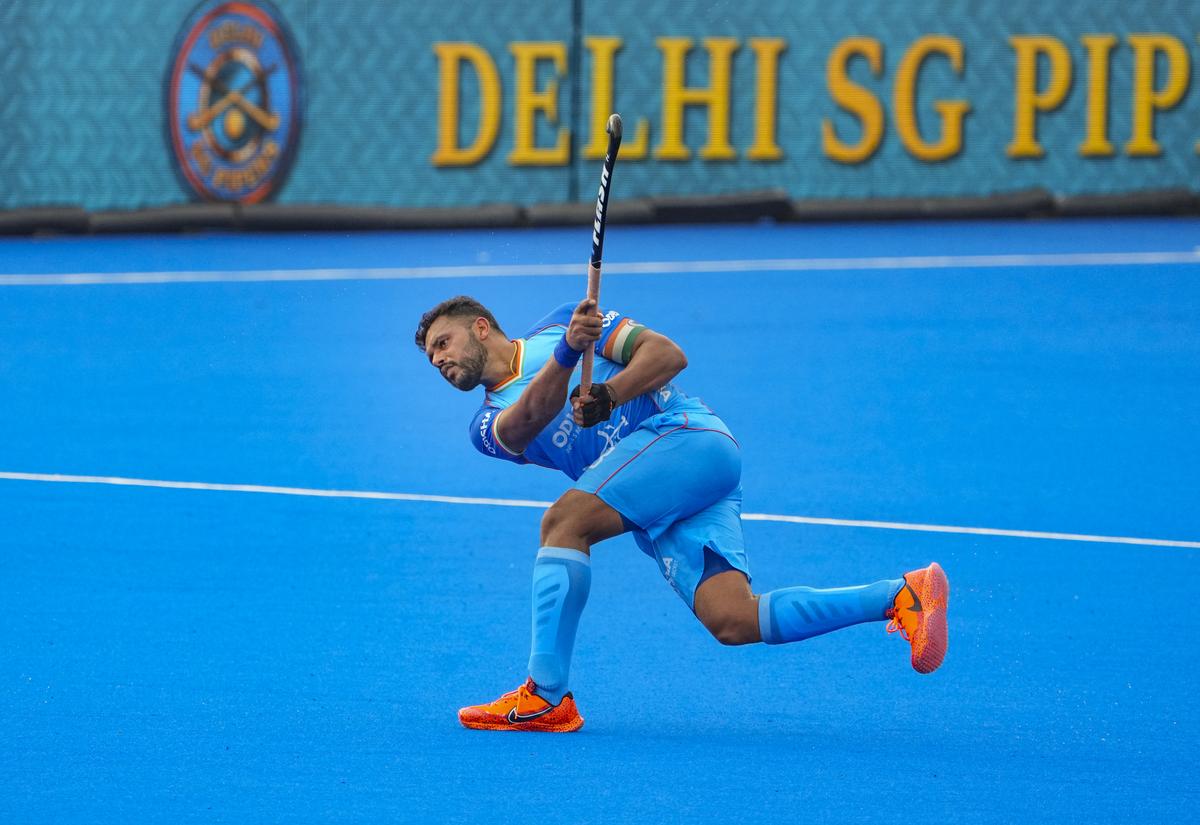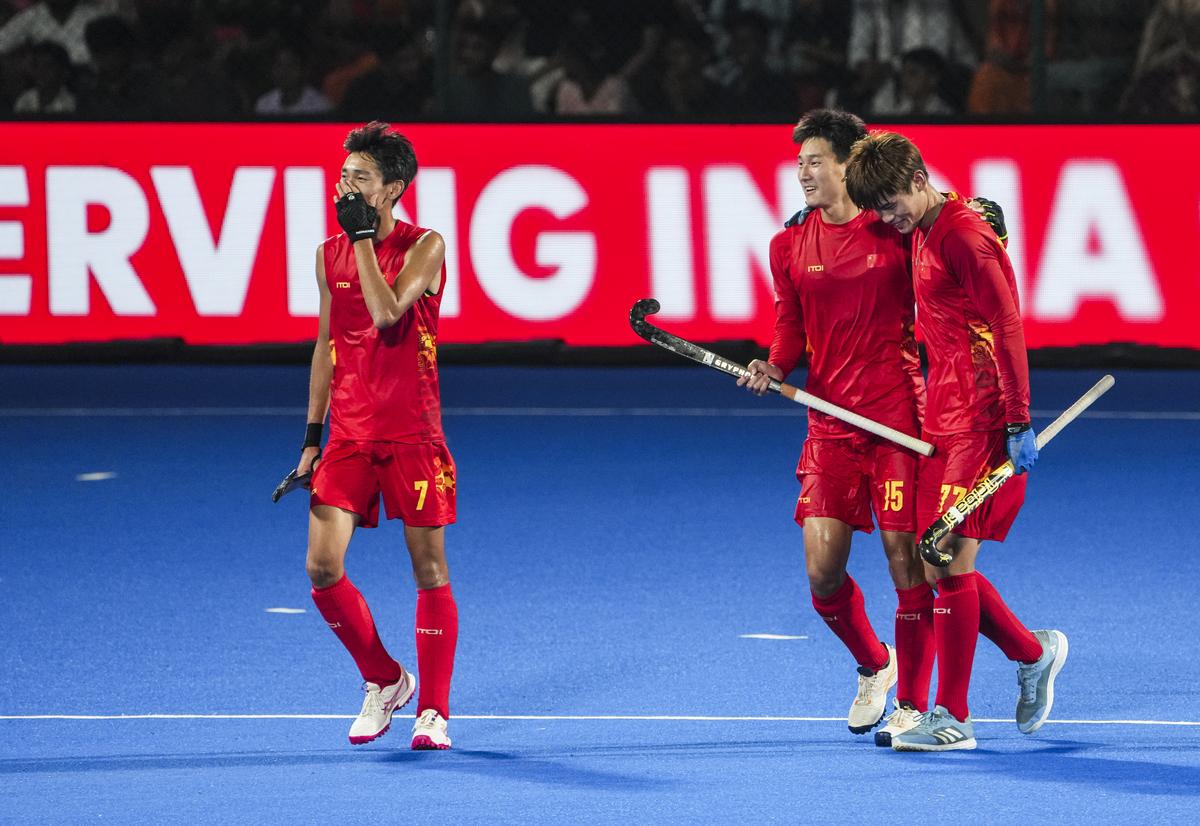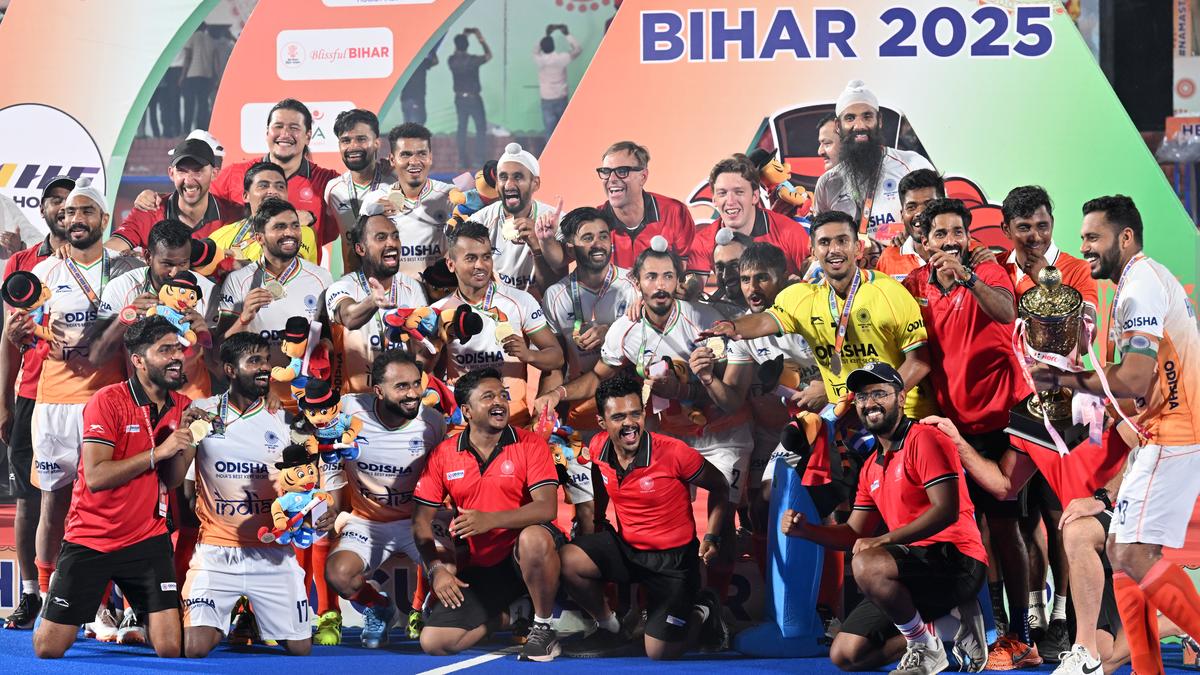Hockey Asia Cup 2025 review: What India’s win really means
The Indian men’s hockey team arrived at the Asia Cup 2025 with one clear goal: to secure its berth at the 2026 World Cup. By the end of the tournament, it not only punched its ticket to Belgium and the Netherlands but also reclaimed its throne as Asia’s best, winning the continental crown after an eight-year wait.
Seven matches in 10 sweltering days in Rajgir tested Craig Fulton’s men, but after a slow start they hit stride when it mattered most. The victory brings relief as much as joy, coming on the heels of a disastrous European leg of the Pro League 2024-25, where India lost seven straight matches. For a team widely regarded as Asia’s benchmark, this was less a breakthrough than a necessary restoration of aura.
With an average of more than 5.5 goals per game, India sparkled in what Fulton had called the “most important tournament of the year.”
It all began under the scorching August sun on Major Dhyan Chand’s birth anniversary, celebrated as National Sports Day. The heat was so fierce that volunteers carried buckets of water to the turf during quarter breaks, stretching them from two minutes to four. Players shed up to three kilograms in a match, with some even falling ill.
India looked weary in its first two afternoon games against China and Japan. Composure was missing in both circles, and narrow one-goal wins came only through Harmanpreet Singh’s drag-flicking brilliance. Opponents’ low defensive blocks caused headaches, and India was vulnerable to counterattacks.
The breakthrough came in the third game against Kazakhstan. India’s 15–0 rout saw the entire team egging on Dilpreet Singh to score, which he eventually did. That moment proved symbolic: in the final, it was Dilpreet’s brace that sealed India’s fourth Asia Cup.
New faces, new roles
The tournament became a coming-of-age platform for several players. Rajinder Singh, Shilanand Lakra, Vivek Sagar Prasad, and Suraj Karkera showed they were ready to take the baton in this new Olympic cycle, especially with Hockey India already talking of rebuilding the squad.
Meanwhile, skipper Harmanpreet stepped into a reinvented role. Usually the defensive anchor, the 29-year-old, still working back to full fitness after injuries, adopted a quarterback-like presence, launching 60-yard aerial passes to open new attacking avenues. Though not at his sharpest from short corners late in the tournament, he remained India’s decisive force.

Though not at his sharpest from short corners late in the tournament, Harmanpreet Singh remained India’s decisive force.
| Photo Credit:
PTI
Though not at his sharpest from short corners late in the tournament, Harmanpreet Singh remained India’s decisive force.
| Photo Credit:
PTI
Right-back Jarmanpreet Singh emerged as another unexpected attacking engine, his overlapping runs and deft first touch setting up teammates like Sukhjeet Singh, Abhishek, Manpreet Singh, Dilpreet, and Shilanand. India finished with a staggering 39 goals, the highest by any team, though the overall lack of quality opposition undoubtedly helped inflate the tally.
State of Asian Hockey
The tournament also laid bare the gulf in Asian hockey. China showed flashes of ambition, while Malaysia, Korea, and Japan pushed hard, but the gap to India was obvious.
“While teams like Malaysia, Korea, Japan, and China are capable of winning on a given day, India is a level above all of them,” observed Malaysia coach Sarjit Kundan.
Without Pro League exposure, Asian teams rarely face the world’s best. For lower-ranked sides such as Bangladesh, Chinese Taipei, and Kazakhstan, the problem is worse; they last played in April at the AFH Cup 2025.

China showed glimpses of ambition through the tournament, which included a statement win over Korea.
| Photo Credit:
PTI
China showed glimpses of ambition through the tournament, which included a statement win over Korea.
| Photo Credit:
PTI
“If we could have leagues in Asia, like the European Championships, where there are different tiers, the weaker teams could play among themselves and then get promoted to the top tier. It would be hugely beneficial for smaller teams like us,” explained Bangladesh coach Mosiur Rahman Biplob.
City of Kings
Rajgir, the ancient town in Bihar, proved a fortuitous host. Following the women’s continental triumph earlier, the men too found success here.
For visiting teams like Japan, China, and Chinese Taipei, the trip was more than sport; it was a pilgrimage to a place steeped in Buddhist history. The Rajgir Sports Complex Hockey Stadium became both a stage for top-level competition and a classroom for its academy players, who not only watched the action from close quarters but also interacted with stars after the final.
If the organisation was efficient, the 4,000–5,000-seat capacity proved inadequate. Spectators braved not just the heat but also cramped stands to cheer.
Big fish in a small pond?
Coach Fulton had set the tone before the tournament: “We intend to be the number one team in Asia always.” His squad backed him up, extending his impressive tenure of three golds and a bronze in four events. His contract runs at least until the 2026 World Cup and Asian Games, with Hockey India firmly behind him.
The South African’s blueprint is clear: use Asian competitions to build depth and cohesion while preparing to face Australia and European giants. Yet the question lingers — against a shallow continental pool, how much does India really learn?
Overall Stats
Goals Scored – 164
Penalty Corner Goals – 59
Top Goal Scoring Team – India (39)
Least Goal Conceding Team – Japan (6)
Individual Stats
Top Scorer – Akhimullah Anuar (Malaysia) – 12
Top Scorer for Indian – Harmanpreet Singh – 7
Most Penalty Corners Scored – Harmanpreet Singh (India) – 6
Individual Awards
Promising Goalkeeper: Caiyu Wang (China)
Rising Star of the Tournament: Andywalfian Jeffrynus (Malaysia)
AHF Best Goalkeeper: Jaehan Kim (Korea)
Player of the Tournament: Abhishek (India)
Published on Sep 09, 2025



